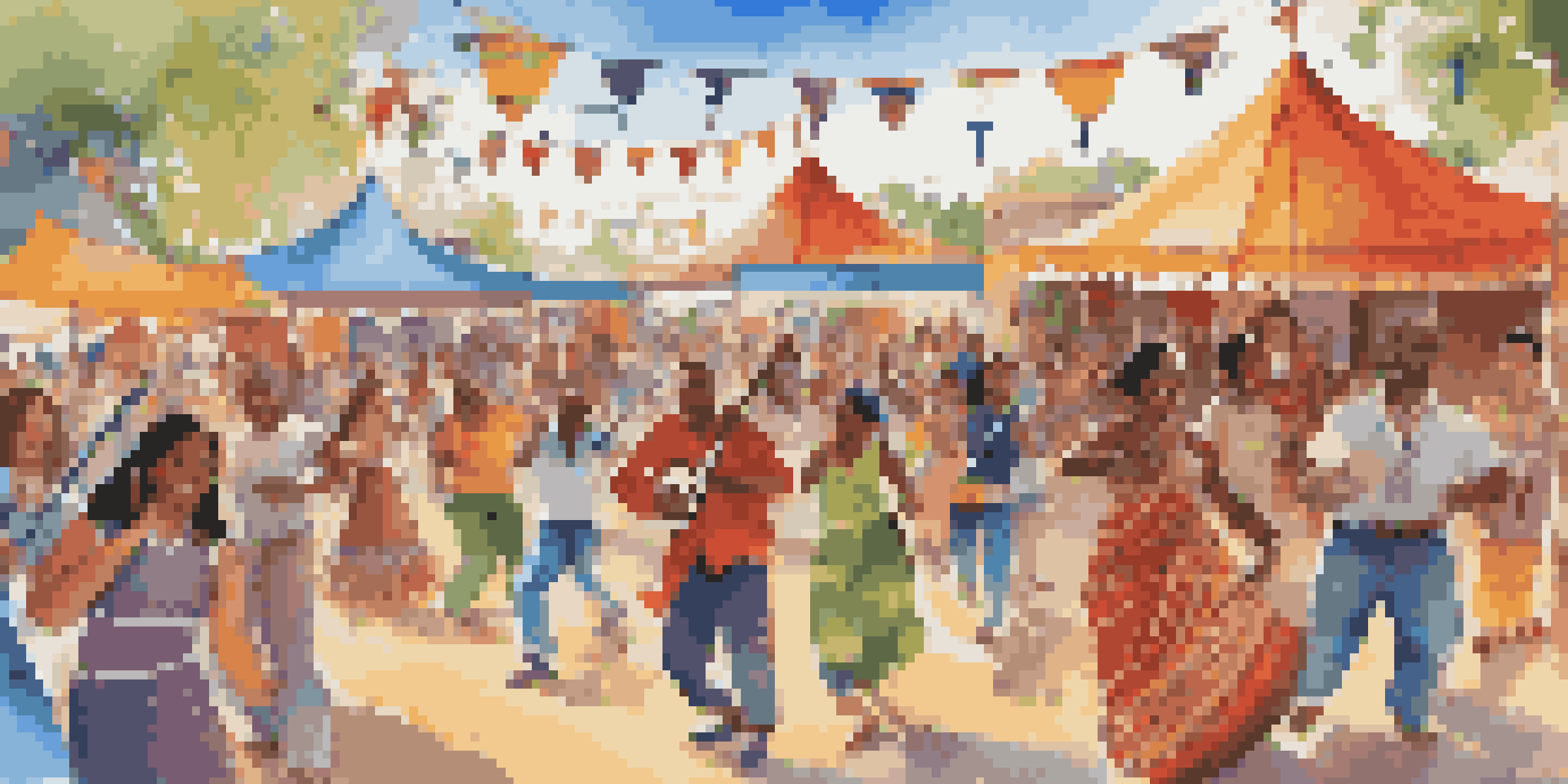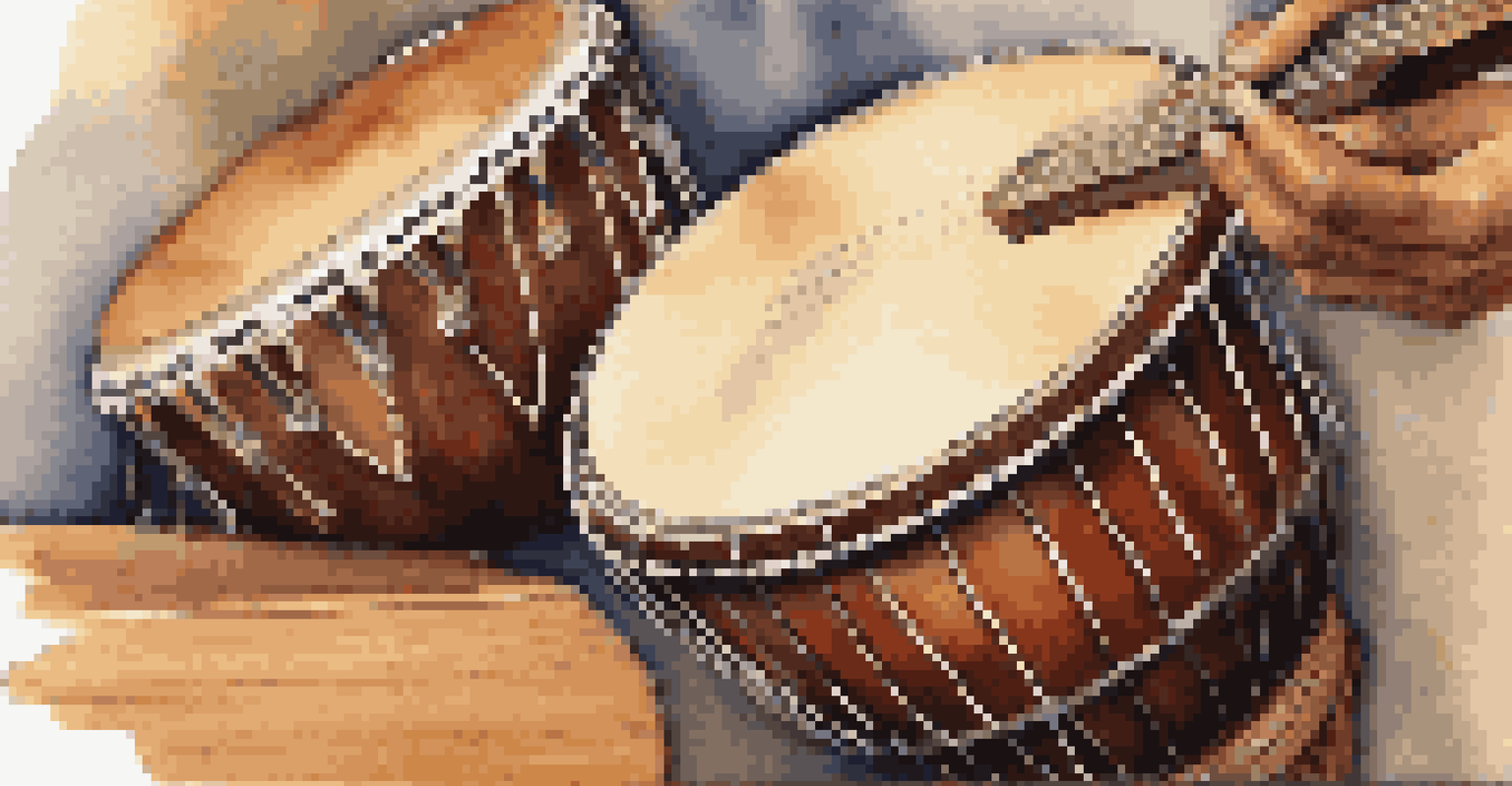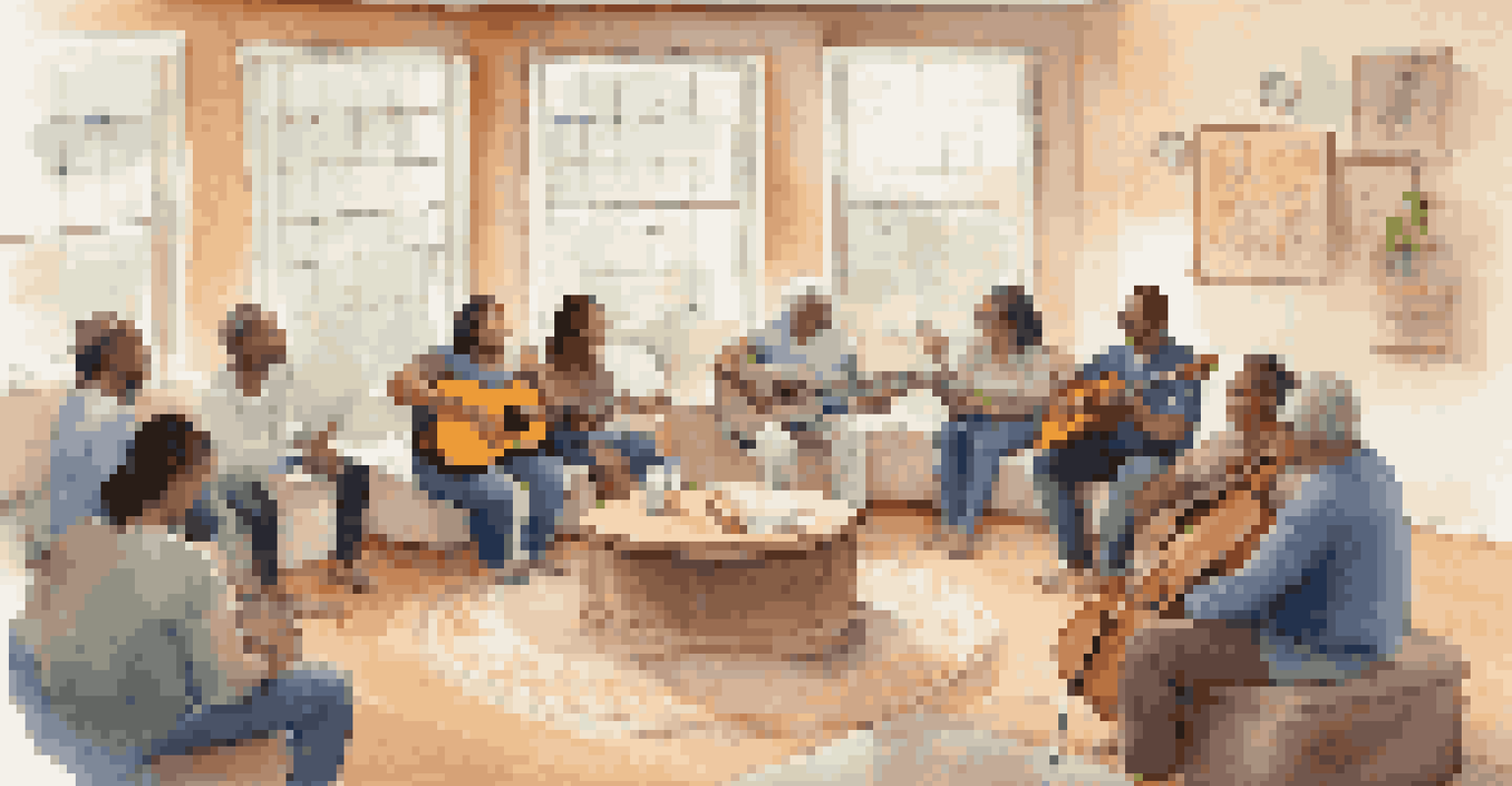Using Music to Foster Understanding in Multicultural Societies

The Universal Language of Music: A Common Ground
Music is often referred to as a universal language, transcending barriers of culture and language. It has the power to evoke emotions and share experiences that words alone sometimes cannot. Just think about how a melody can bring back memories or feelings from a different time or place, creating a shared emotional experience between people from diverse backgrounds.
Music can change the world because it can change people.
In multicultural societies, this universal appeal can serve as a bridge, allowing individuals to connect on a deeper level. For instance, a community event featuring various musical genres can invite participation from people of different nationalities, promoting understanding and appreciation of each other's cultures. This shared musical experience can lead to conversations and connections that might not have happened otherwise.
By engaging with various musical styles, individuals can explore and celebrate their differences while also discovering commonalities. This process not only fosters empathy but also encourages a sense of belonging, crucial in today’s increasingly globalized world.
Music as a Tool for Cultural Exchange
Cultural exchange through music allows societies to learn about one another in a dynamic and enjoyable way. Workshops, concerts, and community festivals can showcase different musical traditions, encouraging people to engage with unfamiliar sounds and rhythms. This immersive experience can spark curiosity and promote discussions about the cultural significance behind the music.

For example, a local festival that features a blend of African drumming and Indian classical music can illustrate the rich histories and traditions of both cultures. Participants not only enjoy the performances but also gain insights into the cultural narratives that accompany these musical forms. This deeper understanding can help dispel stereotypes and foster respect.
Music Bridges Cultural Divides
Music serves as a universal language that fosters connection and understanding among diverse communities.
Moreover, collaborations between musicians from different backgrounds can lead to the creation of new genres that reflect a fusion of cultures. These innovative styles can attract diverse audiences, further embedding the spirit of unity within communities.
The Role of Music Education in Promoting Diversity
Integrating music education that emphasizes multicultural perspectives can significantly enhance students' understanding of global cultures. Schools that incorporate diverse musical styles into their curriculum not only teach children about music but also instill respect for various cultures. This approach helps students see the value in diversity from a young age.
Without music, life would be a mistake.
For instance, a music class that explores the instruments and songs of different cultures encourages students to appreciate the unique aspects of each tradition. By learning about the origins of different musical forms, students can develop a broader worldview, making them more open-minded and empathetic individuals.
Additionally, participating in multicultural music programs can foster teamwork and collaboration among students from varied backgrounds. These experiences can lead to lasting friendships and a sense of community, showcasing the profound impact of music education on societal unity.
Healing Through Music in Diverse Communities
Music has a remarkable ability to heal and bring people together, especially in times of conflict or distress. In multicultural societies facing challenges, music can serve as a source of comfort and solace. Community music therapy initiatives often use the power of music to promote emotional well-being and connection among individuals who may otherwise feel isolated.
For example, singing together or participating in a drum circle can create a sense of unity and shared purpose, breaking down barriers and fostering understanding. In this way, music becomes a powerful tool for healing, allowing individuals to express their feelings and experiences in a supportive environment.
Cultural Exchange Through Music
Engaging with various musical traditions promotes cultural exchange, allowing individuals to learn and appreciate one another's heritage.
Moreover, community events that focus on healing through music can provide a platform for storytelling and shared experiences. These narratives can illuminate the struggles faced by different cultural groups, fostering a greater sense of empathy and solidarity.
The Impact of Technology on Musical Collaboration
In our digital age, technology plays a crucial role in facilitating musical collaboration across cultures. Social media platforms and online music-sharing applications enable artists from different backgrounds to connect and create together, regardless of geographical barriers. This technological advancement has revolutionized how we experience and engage with music.
For instance, musicians can collaborate on projects via video conferencing, sharing their unique sounds and styles in real-time. This kind of collaboration not only enriches the music itself but also promotes cultural understanding among the artists involved. They learn from each other's backgrounds, leading to a more inclusive creative process.
Additionally, online platforms allow listeners to access a diverse range of music from around the world. Exposure to various genres and cultural expressions can broaden audiences' musical tastes and pave the way for more inclusive communities.
Music Festivals: Celebrating Diversity and Unity
Music festivals serve as vibrant celebrations of diversity, bringing together people from all walks of life. These events often feature a wide variety of musical genres, allowing attendees to explore and appreciate different cultural expressions. By sharing a space filled with music, participants can engage with one another, fostering a sense of unity and belonging.
For example, festivals like WOMAD (World of Music, Arts and Dance) showcase artists from various cultural backgrounds, encouraging attendees to immerse themselves in new sounds and experiences. This exposure helps break down cultural barriers and promotes dialogue among diverse groups.
Education Fosters Musical Diversity
Integrating diverse musical styles in education nurtures respect for cultures and encourages empathy among students.
Moreover, music festivals often include workshops and interactive sessions that invite attendees to learn about the cultural significance of the music being showcased. This educational aspect further enriches the experience, allowing for a deeper understanding of the diverse cultures represented at the festival.
Conclusion: The Future of Music in Multicultural Understanding
As we move forward in an increasingly multicultural world, the role of music in fostering understanding and unity cannot be overstated. Music has the potential to break down barriers, create connections, and promote empathy among diverse populations. By embracing and celebrating our differences through music, we can build more inclusive and harmonious communities.
It’s essential for individuals, educators, and community leaders to continue to promote musical initiatives that encourage cultural exchange and understanding. Whether through educational programs, community events, or digital collaborations, the power of music should be harnessed to create a more connected society.

In embracing the richness of our diverse musical heritage, we pave the way for a future where understanding and acceptance thrive, reminding us all that, at the heart of it, we are more alike than different.